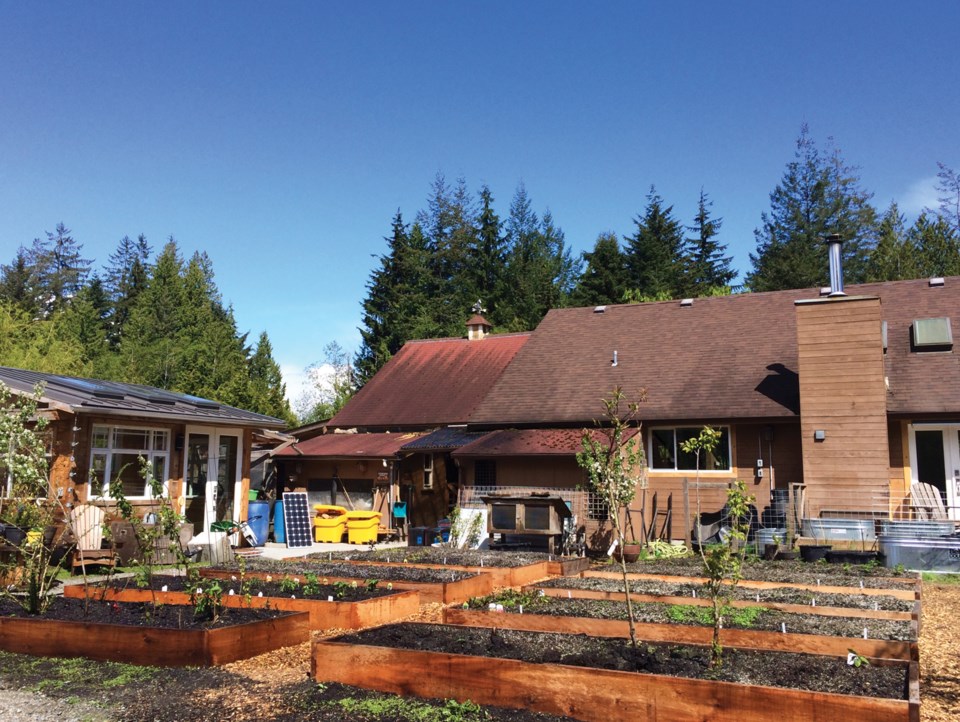I’ve been writing the Elphinstone Community Column for two years as of this issue. Even though I’ve lived here for 38 years, I still have more to learn. I seek out ideas every column; Elphinstone has no “downtown” and therefore not a lot of events – not a problem now as there are no events anywhere (except online)! Please pass along community news for the column at: [email protected]
We are fortunate to live in a rural area with many farms, one of which, the Hough Heritage Farm, is the dream-come-true of Raquel Kolof. She was smitten by the lovely cabin on 10 acres as soon as she saw it in 2014 and since then has been building the property into her vision of a diverse heritage animals farm. It’s what we picture a farm to be – a mixture of animals, crops and fruit trees, with even a sizable area of forest where pigs can roam. The day I visited, physical distancing in play, the six-month-old piglets were lazing contentedly in the pig barn, hens wandered around our feet, and baby lambs sprawled beside their mothers.
Raquel’s philosophy is that in order to maintain heritage breeds, “Farmers must respectfully care for them in a way that allows the animal to express their natural instincts; for pigs, rooting and being in family groups in a forest.”
She believes in regenerative agriculture where working with nature and building diversity is key, and selects animals that benefit each other and their environment. On showing me her two recently purchased Dexter cows, she said, “This is the first time that dairy cows have been on this property since the Hough Dairy Farm supplied the whole community with dairy products.”
Her farm is well fenced with many attractive buildings for the animals and she takes pride in their humane treatment. The baby pigs, sheep and goats are not taken from their mothers, but weaned naturally. She calls modern industrialized agriculture cruel to animals and believes the toxic raising of them affects the quality of the meat and our health.
Raquel says goats and pigs are complementary as goats eat plants from the top down and pigs pull the plants out by the roots; invasive blackberries are a thing of the past on her farm. The day I visited, they expressed a relaxed curiosity and Coconut, her angora goat, came right up to me to get a head rub.
Pastures that animals used previously are now reclaimed for growing plants – animal dung and foraging have left the soil fertile and ready for plants. Raquel worries that gigantic fields of monocultural plants are rapidly depleting the soil and poisoning it with pesticides and insecticides, pointing to Iowa as a state covered in glysophate-soaked soy fields as one of many examples of toxic industrial agriculture.
She first raised the amazing heritage Berkshire pigs, the oldest breed in England, and expanded to Icelandic sheep, Oberhasli goats, and chickens, and says that to raise heritage breeds is to save those breeds. So passionate is Raquel about small-scale farming that she, along with Robin and Joy Dutcher, initiated a Farmers’ Institute two years ago.
In other news, the Elphinstone Community Association (ECA) will hold its Annual General Meeting online using Zoom, on Wednesday, May 13 at 7 p.m. Any ECA member in good standing can attend the meeting by contacting [email protected] for the link.



